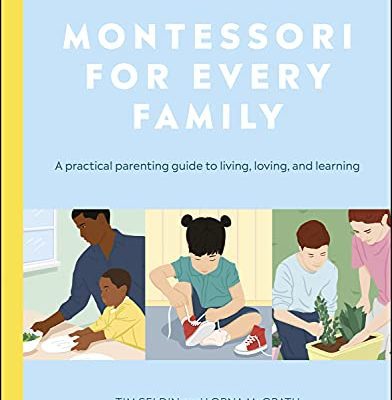 With so much controversy surrounding the safety of childhood inoculations, it is difficult for parents to come up with a sound decision as to what is best for their child. While we have long believed that vaccinations are not only suggested, but are often required,depending on state regulations, new data questions the effects that such vaccinations may have on our children, Sure, they are supposed to ‘protect’ our children but can they also cause harm?
May researchers contend that there may be a link between childhood vaccinations and the development of Autism and Asperger Syndrome (and other Autism spectrum disorders). The media, too, has covered the issue extensively, giving parents the necessary information but often creating more questions than providing answers. While there is no conclusive evidence that states the direct causation effect of vaccinations on autism spectrum disorders, it has certainly provoked a sense of fear and skepticism when parents make choices about children’s health.
Where are parents to turn? What information can they trust? How do parents get the power back into their own hands when making such crucial decisions about the health of their children?
Dr. Bob Sears, pediatrician and author of The Vaccine Book : Making the Right Decision for your Child, offers an alternative approach when making the decision to vaccinate your child. He argues that, given the inconclusive data surrounding the topic, it may be more beneficial for the child’s vaccinations to be spread out over a period of time, rather than the typical cocktail of inoculations given at one time. While he does believe that most children(again, most) are able to tolerate the vaccines all at once, it may be more cautious to give smaller doses over and interval of periods as not to overload the child’s immune system with the inoculations, many which do contain chemicals.
This contends, decreases the risk of the verse side effects and may help parents to feel more secure that their children are better equipped to with stand the effects and prevent the potential harms that may contribute to the negative arguments surrounding vaccinations. Most children are given as many as six shots in one sitting, though Dr. Bob states that there is no specific reason why all six are necessary at one time.
Many doctor’s, however, are opposed to having children’s shots split up, mostly because of the time considerations of both the parents and the doctors, but also because of the potential risk of children’s immune systems being more susceptible to disease and illness, should the shots not be administered ‘on time’ In fact, Dr. Bob suggests that many doctors will actually refuse to see patients who choose not to vaccinate or prefer to have their shots spread out. Dr.Bob has begun a ‘movement’ to try to address such practices, in the hope to further satisfy parents, by giving them more options and more power, while also protecting our children in the process. For those who wish to explore the option of separating the vaccinations over a period of time, there is information provided on Dr. Bob’s website, as well as a database of doctors who are participating in the movement.
But, that still does not answer the question, and there is no simple answer. However, what seems more essential is that parents are provided with useful information, while also being given the power to make informed decisions to make the right choices for their children. Dr. Bob a father himself, states that it is important that children get the proper vaccinations throughout their childhood. The rate of disease has gone down significantly over the years, due to such vaccinations; although, some may argue that the ‘prevalence’ of some disorders has increased (which, arguable could be due to increased reporting, a decrease in stigmatization, improved media coverage, and education). But, these diseases, including measles, mumps, rubella, chickenpox, and whooping cough could increase at alarming rates should people decide to vaccinate their children at all. Again, he states that, particularly if the shots are give in intervals, babies ‘immune systems can handle the ‘germs’ in the inoculations.
It may be most important, however to consider the environments to which the child is exposed. Is the child going to be raised in his/her home, devoid of external exposure to disease and illness? Is the child breast feeding and eating a healthy diet with minimal risk o exposure to other children? Most likely, the answer is no. But, Dr. Bob suggest that parents and doctors, together should address the needs and desires of the child (and parents). Dr. Bob does not believe that there is a ‘right’ or ‘wrong’ side of decision, as long as parents are making informed and educated decisions.
He feels that, unfortunately, there are many misconceptions that are addressed, particularly in the media, which feed this frenzy of fear. In fact when discussing “green vaccinations” those which contain fewer chemicals and toxins, he seems to agree and support such changes by the manufacturers. But, this could be some 15-20 years away, after adequate testing by the government. In the meantime, if people choose not to vaccinate their children the chances of disease and illness increases dramatically, and there will be more cause for concern to present the spread of such illnesses and to treat such debilitating, even life-threatening diseases. Thus, his argument still exist that he respects the rights of the parents to make informed decisions, but to also look at alternative methods with doctors who may be open to interval vaccinations, potentially decreasing the risk of adverse reactions.
Dr. Bob also stresses the importance of nutrition (nutritional immunization).as it also plays a significant roles in children developing a healthy and strong immune system. Additionally, he notes that, “through good nutrition may bot be enough protection to making vaccines unnecessary,” it does help to prevent diseases by providing protective minerals and nutrients. He explains to parents (and children) the concept of foods as consisting of “green light, yellow light, and red light” foods (communicating effectively with such titles). The ‘green light,’ understandably represents those foods that kids can freely enjoy regularly , as they include fruits and vegetables .”Yellow light” food are those that should be enjoyed in moderations, and include chocolate and homemade desserts, but only as an occasional treat. And, “red light” foods should be avoided as they are considered “junk food,” which ae deficient in nutrition and often include artificial ingredients. Again, while nutrition does not substitute for vaccination, it often plays a vital role in the development of healthy bodies as well as creating healthy lifestyles.
When asked about how parents can feel empowered in the decision to vaccinate or not to vaccinate, Dr. Bob offered a few suggestions. First it is helpful for parents to educate themselves, as doctors are equipped with a plethora of information, but cannot possibly share all the findings with parents (particularly since there is such conflicting information). They may offer their own perspective or offer current research findings, but it is empowering for parents to feel that they are taking an active role in their child’s health and well-being.
Second, regardless of the actual decision, Dr. Bob suggests that parents should come up with a conclusion with informed reasoning. Third he notes that it would be most beneficial for parents to schedule and appointment before the first set of vaccinations to explore their view, ask any questions, and discuss the benefit/risk analysis of the vaccinations. Many doctors are so busy that they cannot allocate more time for ‘discussion’ outside of what is normative for routine visits. It is, therefore, essential for parents and doctors to work as a team to plan for the treatment of the child, there scheduling appropriate time for an open dialogue on this topic.
Again, our children’s future rest in the hands of those trusting adults that make such important and vital decisions. While Dr.Bob believes that vaccinations are essential, we understand that there are many other beliefs about the benefits and risks of vaccinations and do not support solely one argument. As someone that works in the field of psychology, it is fully understandable that people have fears of children developing such disorders that are commonly ’associated’ with the vaccinations. However, it is also important to continue, with caution, protection our children in whatever ways we feel comfortable and possibly can.
We write this article, not to encourage parents to vaccinate their children, or to dispel any misconceptions that are out there, but to offer an alternate approach to vaccinating children in, potentially, a safer and less threatening manner. Dr. Bob, shares a philosophy, herein he believes in the protection and health of the child foremost, but also fully supports and respect the decisions of parents. In conclusion, though, it is important, in following with Montessori’s beliefs to remain educated about our decisions, be respectful in the process, and continue exploring our world and what it offers.
Tomorrow’s Child/ BTS 2008/ p23
With so much controversy surrounding the safety of childhood inoculations, it is difficult for parents to come up with a sound decision as to what is best for their child. While we have long believed that vaccinations are not only suggested, but are often required,depending on state regulations, new data questions the effects that such vaccinations may have on our children, Sure, they are supposed to ‘protect’ our children but can they also cause harm?
May researchers contend that there may be a link between childhood vaccinations and the development of Autism and Asperger Syndrome (and other Autism spectrum disorders). The media, too, has covered the issue extensively, giving parents the necessary information but often creating more questions than providing answers. While there is no conclusive evidence that states the direct causation effect of vaccinations on autism spectrum disorders, it has certainly provoked a sense of fear and skepticism when parents make choices about children’s health.
Where are parents to turn? What information can they trust? How do parents get the power back into their own hands when making such crucial decisions about the health of their children?
Dr. Bob Sears, pediatrician and author of The Vaccine Book : Making the Right Decision for your Child, offers an alternative approach when making the decision to vaccinate your child. He argues that, given the inconclusive data surrounding the topic, it may be more beneficial for the child’s vaccinations to be spread out over a period of time, rather than the typical cocktail of inoculations given at one time. While he does believe that most children(again, most) are able to tolerate the vaccines all at once, it may be more cautious to give smaller doses over and interval of periods as not to overload the child’s immune system with the inoculations, many which do contain chemicals.
This contends, decreases the risk of the verse side effects and may help parents to feel more secure that their children are better equipped to with stand the effects and prevent the potential harms that may contribute to the negative arguments surrounding vaccinations. Most children are given as many as six shots in one sitting, though Dr. Bob states that there is no specific reason why all six are necessary at one time.
Many doctor’s, however, are opposed to having children’s shots split up, mostly because of the time considerations of both the parents and the doctors, but also because of the potential risk of children’s immune systems being more susceptible to disease and illness, should the shots not be administered ‘on time’ In fact, Dr. Bob suggests that many doctors will actually refuse to see patients who choose not to vaccinate or prefer to have their shots spread out. Dr.Bob has begun a ‘movement’ to try to address such practices, in the hope to further satisfy parents, by giving them more options and more power, while also protecting our children in the process. For those who wish to explore the option of separating the vaccinations over a period of time, there is information provided on Dr. Bob’s website, as well as a database of doctors who are participating in the movement.
But, that still does not answer the question, and there is no simple answer. However, what seems more essential is that parents are provided with useful information, while also being given the power to make informed decisions to make the right choices for their children. Dr. Bob a father himself, states that it is important that children get the proper vaccinations throughout their childhood. The rate of disease has gone down significantly over the years, due to such vaccinations; although, some may argue that the ‘prevalence’ of some disorders has increased (which, arguable could be due to increased reporting, a decrease in stigmatization, improved media coverage, and education). But, these diseases, including measles, mumps, rubella, chickenpox, and whooping cough could increase at alarming rates should people decide to vaccinate their children at all. Again, he states that, particularly if the shots are give in intervals, babies ‘immune systems can handle the ‘germs’ in the inoculations.
It may be most important, however to consider the environments to which the child is exposed. Is the child going to be raised in his/her home, devoid of external exposure to disease and illness? Is the child breast feeding and eating a healthy diet with minimal risk o exposure to other children? Most likely, the answer is no. But, Dr. Bob suggest that parents and doctors, together should address the needs and desires of the child (and parents). Dr. Bob does not believe that there is a ‘right’ or ‘wrong’ side of decision, as long as parents are making informed and educated decisions.
He feels that, unfortunately, there are many misconceptions that are addressed, particularly in the media, which feed this frenzy of fear. In fact when discussing “green vaccinations” those which contain fewer chemicals and toxins, he seems to agree and support such changes by the manufacturers. But, this could be some 15-20 years away, after adequate testing by the government. In the meantime, if people choose not to vaccinate their children the chances of disease and illness increases dramatically, and there will be more cause for concern to present the spread of such illnesses and to treat such debilitating, even life-threatening diseases. Thus, his argument still exist that he respects the rights of the parents to make informed decisions, but to also look at alternative methods with doctors who may be open to interval vaccinations, potentially decreasing the risk of adverse reactions.
Dr. Bob also stresses the importance of nutrition (nutritional immunization).as it also plays a significant roles in children developing a healthy and strong immune system. Additionally, he notes that, “through good nutrition may bot be enough protection to making vaccines unnecessary,” it does help to prevent diseases by providing protective minerals and nutrients. He explains to parents (and children) the concept of foods as consisting of “green light, yellow light, and red light” foods (communicating effectively with such titles). The ‘green light,’ understandably represents those foods that kids can freely enjoy regularly , as they include fruits and vegetables .”Yellow light” food are those that should be enjoyed in moderations, and include chocolate and homemade desserts, but only as an occasional treat. And, “red light” foods should be avoided as they are considered “junk food,” which ae deficient in nutrition and often include artificial ingredients. Again, while nutrition does not substitute for vaccination, it often plays a vital role in the development of healthy bodies as well as creating healthy lifestyles.
When asked about how parents can feel empowered in the decision to vaccinate or not to vaccinate, Dr. Bob offered a few suggestions. First it is helpful for parents to educate themselves, as doctors are equipped with a plethora of information, but cannot possibly share all the findings with parents (particularly since there is such conflicting information). They may offer their own perspective or offer current research findings, but it is empowering for parents to feel that they are taking an active role in their child’s health and well-being.
Second, regardless of the actual decision, Dr. Bob suggests that parents should come up with a conclusion with informed reasoning. Third he notes that it would be most beneficial for parents to schedule and appointment before the first set of vaccinations to explore their view, ask any questions, and discuss the benefit/risk analysis of the vaccinations. Many doctors are so busy that they cannot allocate more time for ‘discussion’ outside of what is normative for routine visits. It is, therefore, essential for parents and doctors to work as a team to plan for the treatment of the child, there scheduling appropriate time for an open dialogue on this topic.
Again, our children’s future rest in the hands of those trusting adults that make such important and vital decisions. While Dr.Bob believes that vaccinations are essential, we understand that there are many other beliefs about the benefits and risks of vaccinations and do not support solely one argument. As someone that works in the field of psychology, it is fully understandable that people have fears of children developing such disorders that are commonly ’associated’ with the vaccinations. However, it is also important to continue, with caution, protection our children in whatever ways we feel comfortable and possibly can.
We write this article, not to encourage parents to vaccinate their children, or to dispel any misconceptions that are out there, but to offer an alternate approach to vaccinating children in, potentially, a safer and less threatening manner. Dr. Bob, shares a philosophy, herein he believes in the protection and health of the child foremost, but also fully supports and respect the decisions of parents. In conclusion, though, it is important, in following with Montessori’s beliefs to remain educated about our decisions, be respectful in the process, and continue exploring our world and what it offers.
Tomorrow’s Child/ BTS 2008/ p23
 With so much controversy surrounding the safety of childhood inoculations, it is difficult for parents to come up with a sound decision as to what is best for their child. While we have long believed that vaccinations are not only suggested, but are often required,depending on state regulations, new data questions the effects that such vaccinations may have on our children, Sure, they are supposed to ‘protect’ our children but can they also cause harm?
May researchers contend that there may be a link between childhood vaccinations and the development of Autism and Asperger Syndrome (and other Autism spectrum disorders). The media, too, has covered the issue extensively, giving parents the necessary information but often creating more questions than providing answers. While there is no conclusive evidence that states the direct causation effect of vaccinations on autism spectrum disorders, it has certainly provoked a sense of fear and skepticism when parents make choices about children’s health.
Where are parents to turn? What information can they trust? How do parents get the power back into their own hands when making such crucial decisions about the health of their children?
Dr. Bob Sears, pediatrician and author of The Vaccine Book : Making the Right Decision for your Child, offers an alternative approach when making the decision to vaccinate your child. He argues that, given the inconclusive data surrounding the topic, it may be more beneficial for the child’s vaccinations to be spread out over a period of time, rather than the typical cocktail of inoculations given at one time. While he does believe that most children(again, most) are able to tolerate the vaccines all at once, it may be more cautious to give smaller doses over and interval of periods as not to overload the child’s immune system with the inoculations, many which do contain chemicals.
This contends, decreases the risk of the verse side effects and may help parents to feel more secure that their children are better equipped to with stand the effects and prevent the potential harms that may contribute to the negative arguments surrounding vaccinations. Most children are given as many as six shots in one sitting, though Dr. Bob states that there is no specific reason why all six are necessary at one time.
Many doctor’s, however, are opposed to having children’s shots split up, mostly because of the time considerations of both the parents and the doctors, but also because of the potential risk of children’s immune systems being more susceptible to disease and illness, should the shots not be administered ‘on time’ In fact, Dr. Bob suggests that many doctors will actually refuse to see patients who choose not to vaccinate or prefer to have their shots spread out. Dr.Bob has begun a ‘movement’ to try to address such practices, in the hope to further satisfy parents, by giving them more options and more power, while also protecting our children in the process. For those who wish to explore the option of separating the vaccinations over a period of time, there is information provided on Dr. Bob’s website, as well as a database of doctors who are participating in the movement.
But, that still does not answer the question, and there is no simple answer. However, what seems more essential is that parents are provided with useful information, while also being given the power to make informed decisions to make the right choices for their children. Dr. Bob a father himself, states that it is important that children get the proper vaccinations throughout their childhood. The rate of disease has gone down significantly over the years, due to such vaccinations; although, some may argue that the ‘prevalence’ of some disorders has increased (which, arguable could be due to increased reporting, a decrease in stigmatization, improved media coverage, and education). But, these diseases, including measles, mumps, rubella, chickenpox, and whooping cough could increase at alarming rates should people decide to vaccinate their children at all. Again, he states that, particularly if the shots are give in intervals, babies ‘immune systems can handle the ‘germs’ in the inoculations.
It may be most important, however to consider the environments to which the child is exposed. Is the child going to be raised in his/her home, devoid of external exposure to disease and illness? Is the child breast feeding and eating a healthy diet with minimal risk o exposure to other children? Most likely, the answer is no. But, Dr. Bob suggest that parents and doctors, together should address the needs and desires of the child (and parents). Dr. Bob does not believe that there is a ‘right’ or ‘wrong’ side of decision, as long as parents are making informed and educated decisions.
He feels that, unfortunately, there are many misconceptions that are addressed, particularly in the media, which feed this frenzy of fear. In fact when discussing “green vaccinations” those which contain fewer chemicals and toxins, he seems to agree and support such changes by the manufacturers. But, this could be some 15-20 years away, after adequate testing by the government. In the meantime, if people choose not to vaccinate their children the chances of disease and illness increases dramatically, and there will be more cause for concern to present the spread of such illnesses and to treat such debilitating, even life-threatening diseases. Thus, his argument still exist that he respects the rights of the parents to make informed decisions, but to also look at alternative methods with doctors who may be open to interval vaccinations, potentially decreasing the risk of adverse reactions.
Dr. Bob also stresses the importance of nutrition (nutritional immunization).as it also plays a significant roles in children developing a healthy and strong immune system. Additionally, he notes that, “through good nutrition may bot be enough protection to making vaccines unnecessary,” it does help to prevent diseases by providing protective minerals and nutrients. He explains to parents (and children) the concept of foods as consisting of “green light, yellow light, and red light” foods (communicating effectively with such titles). The ‘green light,’ understandably represents those foods that kids can freely enjoy regularly , as they include fruits and vegetables .”Yellow light” food are those that should be enjoyed in moderations, and include chocolate and homemade desserts, but only as an occasional treat. And, “red light” foods should be avoided as they are considered “junk food,” which ae deficient in nutrition and often include artificial ingredients. Again, while nutrition does not substitute for vaccination, it often plays a vital role in the development of healthy bodies as well as creating healthy lifestyles.
When asked about how parents can feel empowered in the decision to vaccinate or not to vaccinate, Dr. Bob offered a few suggestions. First it is helpful for parents to educate themselves, as doctors are equipped with a plethora of information, but cannot possibly share all the findings with parents (particularly since there is such conflicting information). They may offer their own perspective or offer current research findings, but it is empowering for parents to feel that they are taking an active role in their child’s health and well-being.
Second, regardless of the actual decision, Dr. Bob suggests that parents should come up with a conclusion with informed reasoning. Third he notes that it would be most beneficial for parents to schedule and appointment before the first set of vaccinations to explore their view, ask any questions, and discuss the benefit/risk analysis of the vaccinations. Many doctors are so busy that they cannot allocate more time for ‘discussion’ outside of what is normative for routine visits. It is, therefore, essential for parents and doctors to work as a team to plan for the treatment of the child, there scheduling appropriate time for an open dialogue on this topic.
Again, our children’s future rest in the hands of those trusting adults that make such important and vital decisions. While Dr.Bob believes that vaccinations are essential, we understand that there are many other beliefs about the benefits and risks of vaccinations and do not support solely one argument. As someone that works in the field of psychology, it is fully understandable that people have fears of children developing such disorders that are commonly ’associated’ with the vaccinations. However, it is also important to continue, with caution, protection our children in whatever ways we feel comfortable and possibly can.
We write this article, not to encourage parents to vaccinate their children, or to dispel any misconceptions that are out there, but to offer an alternate approach to vaccinating children in, potentially, a safer and less threatening manner. Dr. Bob, shares a philosophy, herein he believes in the protection and health of the child foremost, but also fully supports and respect the decisions of parents. In conclusion, though, it is important, in following with Montessori’s beliefs to remain educated about our decisions, be respectful in the process, and continue exploring our world and what it offers.
Tomorrow’s Child/ BTS 2008/ p23
With so much controversy surrounding the safety of childhood inoculations, it is difficult for parents to come up with a sound decision as to what is best for their child. While we have long believed that vaccinations are not only suggested, but are often required,depending on state regulations, new data questions the effects that such vaccinations may have on our children, Sure, they are supposed to ‘protect’ our children but can they also cause harm?
May researchers contend that there may be a link between childhood vaccinations and the development of Autism and Asperger Syndrome (and other Autism spectrum disorders). The media, too, has covered the issue extensively, giving parents the necessary information but often creating more questions than providing answers. While there is no conclusive evidence that states the direct causation effect of vaccinations on autism spectrum disorders, it has certainly provoked a sense of fear and skepticism when parents make choices about children’s health.
Where are parents to turn? What information can they trust? How do parents get the power back into their own hands when making such crucial decisions about the health of their children?
Dr. Bob Sears, pediatrician and author of The Vaccine Book : Making the Right Decision for your Child, offers an alternative approach when making the decision to vaccinate your child. He argues that, given the inconclusive data surrounding the topic, it may be more beneficial for the child’s vaccinations to be spread out over a period of time, rather than the typical cocktail of inoculations given at one time. While he does believe that most children(again, most) are able to tolerate the vaccines all at once, it may be more cautious to give smaller doses over and interval of periods as not to overload the child’s immune system with the inoculations, many which do contain chemicals.
This contends, decreases the risk of the verse side effects and may help parents to feel more secure that their children are better equipped to with stand the effects and prevent the potential harms that may contribute to the negative arguments surrounding vaccinations. Most children are given as many as six shots in one sitting, though Dr. Bob states that there is no specific reason why all six are necessary at one time.
Many doctor’s, however, are opposed to having children’s shots split up, mostly because of the time considerations of both the parents and the doctors, but also because of the potential risk of children’s immune systems being more susceptible to disease and illness, should the shots not be administered ‘on time’ In fact, Dr. Bob suggests that many doctors will actually refuse to see patients who choose not to vaccinate or prefer to have their shots spread out. Dr.Bob has begun a ‘movement’ to try to address such practices, in the hope to further satisfy parents, by giving them more options and more power, while also protecting our children in the process. For those who wish to explore the option of separating the vaccinations over a period of time, there is information provided on Dr. Bob’s website, as well as a database of doctors who are participating in the movement.
But, that still does not answer the question, and there is no simple answer. However, what seems more essential is that parents are provided with useful information, while also being given the power to make informed decisions to make the right choices for their children. Dr. Bob a father himself, states that it is important that children get the proper vaccinations throughout their childhood. The rate of disease has gone down significantly over the years, due to such vaccinations; although, some may argue that the ‘prevalence’ of some disorders has increased (which, arguable could be due to increased reporting, a decrease in stigmatization, improved media coverage, and education). But, these diseases, including measles, mumps, rubella, chickenpox, and whooping cough could increase at alarming rates should people decide to vaccinate their children at all. Again, he states that, particularly if the shots are give in intervals, babies ‘immune systems can handle the ‘germs’ in the inoculations.
It may be most important, however to consider the environments to which the child is exposed. Is the child going to be raised in his/her home, devoid of external exposure to disease and illness? Is the child breast feeding and eating a healthy diet with minimal risk o exposure to other children? Most likely, the answer is no. But, Dr. Bob suggest that parents and doctors, together should address the needs and desires of the child (and parents). Dr. Bob does not believe that there is a ‘right’ or ‘wrong’ side of decision, as long as parents are making informed and educated decisions.
He feels that, unfortunately, there are many misconceptions that are addressed, particularly in the media, which feed this frenzy of fear. In fact when discussing “green vaccinations” those which contain fewer chemicals and toxins, he seems to agree and support such changes by the manufacturers. But, this could be some 15-20 years away, after adequate testing by the government. In the meantime, if people choose not to vaccinate their children the chances of disease and illness increases dramatically, and there will be more cause for concern to present the spread of such illnesses and to treat such debilitating, even life-threatening diseases. Thus, his argument still exist that he respects the rights of the parents to make informed decisions, but to also look at alternative methods with doctors who may be open to interval vaccinations, potentially decreasing the risk of adverse reactions.
Dr. Bob also stresses the importance of nutrition (nutritional immunization).as it also plays a significant roles in children developing a healthy and strong immune system. Additionally, he notes that, “through good nutrition may bot be enough protection to making vaccines unnecessary,” it does help to prevent diseases by providing protective minerals and nutrients. He explains to parents (and children) the concept of foods as consisting of “green light, yellow light, and red light” foods (communicating effectively with such titles). The ‘green light,’ understandably represents those foods that kids can freely enjoy regularly , as they include fruits and vegetables .”Yellow light” food are those that should be enjoyed in moderations, and include chocolate and homemade desserts, but only as an occasional treat. And, “red light” foods should be avoided as they are considered “junk food,” which ae deficient in nutrition and often include artificial ingredients. Again, while nutrition does not substitute for vaccination, it often plays a vital role in the development of healthy bodies as well as creating healthy lifestyles.
When asked about how parents can feel empowered in the decision to vaccinate or not to vaccinate, Dr. Bob offered a few suggestions. First it is helpful for parents to educate themselves, as doctors are equipped with a plethora of information, but cannot possibly share all the findings with parents (particularly since there is such conflicting information). They may offer their own perspective or offer current research findings, but it is empowering for parents to feel that they are taking an active role in their child’s health and well-being.
Second, regardless of the actual decision, Dr. Bob suggests that parents should come up with a conclusion with informed reasoning. Third he notes that it would be most beneficial for parents to schedule and appointment before the first set of vaccinations to explore their view, ask any questions, and discuss the benefit/risk analysis of the vaccinations. Many doctors are so busy that they cannot allocate more time for ‘discussion’ outside of what is normative for routine visits. It is, therefore, essential for parents and doctors to work as a team to plan for the treatment of the child, there scheduling appropriate time for an open dialogue on this topic.
Again, our children’s future rest in the hands of those trusting adults that make such important and vital decisions. While Dr.Bob believes that vaccinations are essential, we understand that there are many other beliefs about the benefits and risks of vaccinations and do not support solely one argument. As someone that works in the field of psychology, it is fully understandable that people have fears of children developing such disorders that are commonly ’associated’ with the vaccinations. However, it is also important to continue, with caution, protection our children in whatever ways we feel comfortable and possibly can.
We write this article, not to encourage parents to vaccinate their children, or to dispel any misconceptions that are out there, but to offer an alternate approach to vaccinating children in, potentially, a safer and less threatening manner. Dr. Bob, shares a philosophy, herein he believes in the protection and health of the child foremost, but also fully supports and respect the decisions of parents. In conclusion, though, it is important, in following with Montessori’s beliefs to remain educated about our decisions, be respectful in the process, and continue exploring our world and what it offers.
Tomorrow’s Child/ BTS 2008/ p23






